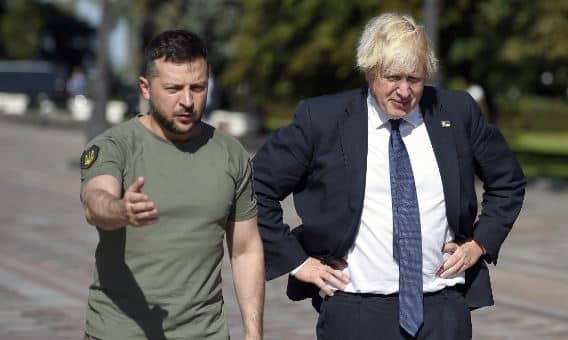Since the beginning of the Russo-Ukrainian War, top US officials have contended that Russian president Vladimir Putin has been uninterested in withdrawing his forces or ending the war anytime soon. Putin’s statements in recent months have certainly indicated that this assessment is largely correct, particularly as it has become apparent to Moscow that the United States and NATO are deeply committed to waging a proxy conflict against Russia. Two recent reports, however, raise questions about whether the war could have been stopped in its earliest days. Are the scuttled proposals to enact a ceasefire and settlement still relevant today? If so, should US policymakers recalibrate their strategy in Ukraine and launch a diplomatic initiative to capitalize on Kyiv’s battlefield gains?
The first report suggesting that the war could have been stopped during its initial phase comes courtesy of an article written by Fiona Hill, a former Russia expert on the National Security Council, and Angela Stent, a nonresident senior fellow at the Brookings Institution, in the latest issue of Foreign Affairs. Hill and Stent wrote that,
According to multiple former senior US officials we spoke with, in April 2022, Russian and Ukrainian negotiators appeared to have tentatively agreed on the outlines of a negotiated interim settlement: Russia would withdraw to its position on February 23, when it controlled part of the Donbas region and all of Crimea, and in exchange, Ukraine would promise not to seek NATO membership and instead receive security guarantees from a number of countries.
Why did this deal fall through? One answer could be that former British prime minister Boris Johnson, upon hearing about the interim settlement, flew to Kyiv to tell Ukrainian president Volodymyr Zelenskyy that the West would not support such an agreement. According to a May 5 report in the Ukrainian online newspaper Ukrainska Pravda, “sources close to Zelenskyy” said that “Johnson’s position was that the collective West … now felt that Putin was not really as powerful as they had previously imagined, and that here was a chance to ‘press him.’” The report went on to observe that “Three days after Johnson left for Britain, Putin went public and said talks with Ukraine ‘had turned into a dead end.’”



